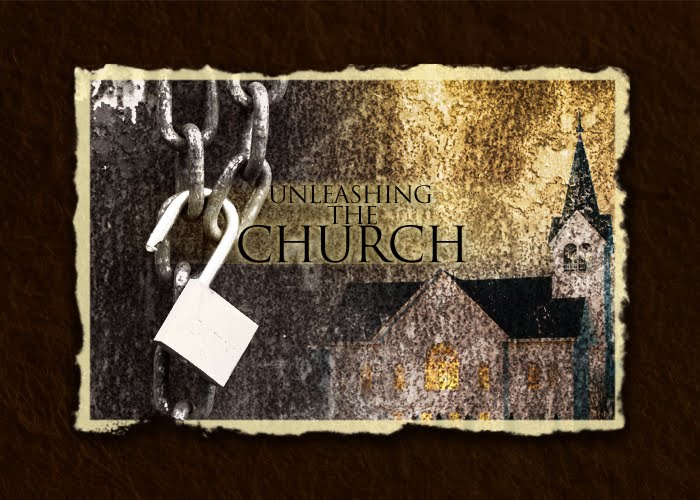So I left off a few days ago with The Wesleyans of 18th century Britain are one of Church History’s best examples of how Christians can make a difference without an “edifice complex.” I promise I will circle back to the Kingdom soon, but first…
The horrific conditions that existed prior to the brutal revolution in France at the end of the 18th century also existed in Great Britain. Great Britain however did not sink into a revolution similar to the one in France. It is worth noting that Great Britain had a significant number of Wesleyans, France, on other hand, had no comparable group. The French had already expelled their largest group of Protestants, the Huguenots. While the Wesleyans did not, by themselves, keep Britain from a revolution similar to the one France experienced; they were a significant mitigating force that championed the poor.
Conditions in 18th Century Britain
Housing: Ten people living in one room was common
Streets: Horse manure piled as much as 14 feet high along side the roads was common.
Diseases: Typhoid, small pox, dysentery, and cholera spread unchecked.
Starvation: Daily wagons picked up the bodies of those who had starved to death the night before on the streets of British towns.
Grave Yards: Poor Holes were large common graves, left open until they were filled with the bodies of the unknown.
Schools: one in twenty five children attended any type of school.
Children: By the age of six children worked 12 to 14 hours a day, many were sold to Chimney Sweeps by the age of two or three.
The Law: Five men were hanged in London for stealing a total of $1.50
The Wesleyan Response
1.Started schools for the poor, the first Sunday School was started by a lay man, Robert Raikes, who was influenced by Wesley. Its purpose was to teach kids, who worked in the factories six days week, the three Rs.
2.Started food and clothing distributions.
3.Opened homes for widows.
4.Launched the Sick Visitors Corporation to visit the sick in hospitals.
5.Championed prison reform and started prison ministries.
6.Began an unemployment program.
7.Started the Strangers Friend Society to befriend immigrants.
8.Started orphanages, in fact when Wesley traveled to America to preach during the Great Awakening, his primary motivation was to start orphanages.
9.Did ministry in London’s workhouses through something called the Christian Community.
10.Did pre and post natal care and religious instruction to unwed mothers
11.Offered loans to poor people to start businesses, the slogan was “join hands with God to help a poor man live.”
There was a deep conviction among 18th century Wesleyans that God was on the side of the poor. Therefore, to be on God’s side meant joining Him on the side of the poor. Unfortunately that mentality has largely disappeared in affluent middle class American churches.
Followers
Saturday, December 11, 2010
Wednesday, December 01, 2010
We Did Better Without An Address
I had a great conversation on The Kingdom of God with three friends this week and in the next few blogs will unpack what I mean by Kingdom, let begin by explaining why it is so important to understand the Kingdom. One of the worst things to come out of the Church Growth Movement is its emphasis on facilities. Church Growth tends to emphasize being in the right location and running the right kind of programs. If you do that the people will come, and they are right!
But a great location, great preaching and great programming can be a curse to the growth of the Kingdom. To illustrate what I mean let me tell you about a ministry I use to work with several years ago, it was called Cornerstone, a group home for delinquent female teens.
The drug craze of the 1970’s created a host of new social problems. One of the new problems was the need for hundreds of new state run juvenile delinquent homes for females. The federal government made money available to the states to open a large number of homes all across the country. To my knowledge the only church in Colorado that applied for a license to run a home was my church Bear Valley Baptist and the church that my friend Frank pastored. I doubt that the leadership in any other church in the state was even aware that the money was available. If church leadership is primarily focused on Church Growth rather Kingdom Growth this kind of “social action” information is not very useful.
Bear Valley Church ran a very successful home, called Cornerstone, for five years until all the funding for the federally funded homes was cut. A successful home meant that the girls emancipated, i.e. they finished high school and moved into adulthood and out of the system. Dozens of girls not only got their lives back on track; many became a part of the Bear Valley family.
So how does running a home like the Cornerstone relate to the right location with great programming? With a great location and great programming churches can easily be convinced that they are getting the job of the Great Commission done by keeping the consumers happy. After all they usually grow like crazy and that makes them successful churches.
During the three hundred years, when the church had its biggest influence on its culture, it didn’t have an address. And until church leaders learn to disconnect their mission potential from their church’s address; they will make very little difference in this Post-Christian culture.
The Wesleyans of 18th century Britain are one of Church History’s best examples of how Christians can make a difference without an “edifice complex.”
But a great location, great preaching and great programming can be a curse to the growth of the Kingdom. To illustrate what I mean let me tell you about a ministry I use to work with several years ago, it was called Cornerstone, a group home for delinquent female teens.
The drug craze of the 1970’s created a host of new social problems. One of the new problems was the need for hundreds of new state run juvenile delinquent homes for females. The federal government made money available to the states to open a large number of homes all across the country. To my knowledge the only church in Colorado that applied for a license to run a home was my church Bear Valley Baptist and the church that my friend Frank pastored. I doubt that the leadership in any other church in the state was even aware that the money was available. If church leadership is primarily focused on Church Growth rather Kingdom Growth this kind of “social action” information is not very useful.
Bear Valley Church ran a very successful home, called Cornerstone, for five years until all the funding for the federally funded homes was cut. A successful home meant that the girls emancipated, i.e. they finished high school and moved into adulthood and out of the system. Dozens of girls not only got their lives back on track; many became a part of the Bear Valley family.
So how does running a home like the Cornerstone relate to the right location with great programming? With a great location and great programming churches can easily be convinced that they are getting the job of the Great Commission done by keeping the consumers happy. After all they usually grow like crazy and that makes them successful churches.
During the three hundred years, when the church had its biggest influence on its culture, it didn’t have an address. And until church leaders learn to disconnect their mission potential from their church’s address; they will make very little difference in this Post-Christian culture.
The Wesleyans of 18th century Britain are one of Church History’s best examples of how Christians can make a difference without an “edifice complex.”
Subscribe to:
Posts (Atom)
About Me

- Rich
- I am a slave to no man or institution. I have worked with Frank Tillapaugh for thirty years and most of the ideas are work we would like to share.
The next generation

God thank you for two amazing young leaders
Looking Forward

Each year I get to spend time with young leaders and the gap is growing between them and my generation, why?
Popular Posts
-
I have watched new pastors burn out in less than a year...why? Fuller Institute did a survey and found that 80% of pastors believe that past...
-
General Calling and Special Calling Soon after the Roman emperor, Constantine, converted to Christianity in 315 A.D. churches began to profe...
-
I saw one of my friends (Wes, he is a follower of this blog, God bless him) tonight and he told me after reading this blog he was surprised ...
-
When 20% of the people do 80% of the work in a church, the church leaders usually think that they have an 80% problem. ...
-
I am taking a break from my series to talk about something that just happen. I just met Gavin, he arrived today. His parents Dan and Steph C...
-
If we ask, “what would Jesus do in His new body, i.e. the church; that would be a continuation of what he did in his original body?” The ans...
-
And, believe it or not, a strong emphasis on edification does not often generate mission. Mission potential isn't dependent on how well...
-
Several years ago my friend Frank took a walking tour in London that ended up at Wesley’s chapel. As the tour group ap...
-
Nothing influences the environment of a church as much as the preaching. It is through preaching that people understand how their pastor vie...
-
Ok yesterday I had one response to my blog and while it was thoughtful I was reminded that words on a screen do not always convey the experi...
